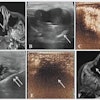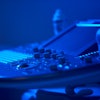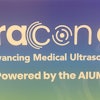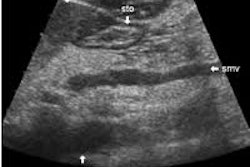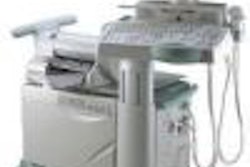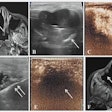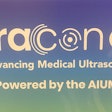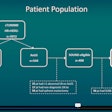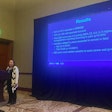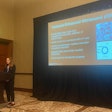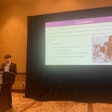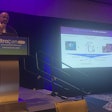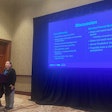Based on the results of transesophageal (TE) echocardiography, German researchers found that the low-molecular-weight heparin enoxaparin was non-inferior to (not significantly worse than) the gold standard, unfractionated heparin, for treating patients with atrial fibrillation.
In the Anticoagulation in Cardioversion of Non-Valvular Atrial Fibrillation (ACE) trial, doctors enrolled 496 patients with non-valvular atrial fibrillation. Of these patients, 65 underwent conventional cardioversion, while the remaining 431 patients underwent cardioversion under guidance of transesophageal echocardiography after exclusion of left arterial thrombus.
Dr. Uwe Nixdorff, professor of medicine at the University of Erlangen-Nurnberg, stated that the echocardiography procedure was able to clearly identify thrombus in those patients. He added that enoxaparin succeeded in passing the test of non-inferiority (i.e., not much worse than control).
"Because of its predictable anticoagulant effect and more convenient subcutaneous administration, enoxaparin may be preferred over the use of unfractionated heparin and phenprocoumon," Nixdorff wrote in a poster presentation at the 2003 American College of Cardiology meeting in Chicago earlier this month.
Overall, 248 patients were assigned to receive enoxaparin; the other 248, unfractionated heparin. All patients also received phenprocoumon. The primary endpoint of the trial was the composite of cerebral-ischemic events, death from any cause, and major hemorrhage. The study was designed to demonstrate non-inferiority of enoxaparin compared with unfractionated heparin. Dr. Nixdorff said 428 patients were treated per protocol; he reported on 410 evaluable patients.
In the unfractionated heparin group of 216 patients, 5.7% experienced a clinical event, compared with 3.2% of the 212 enoxaparin patients. That reached a p-value of 0.016, significant as a test for non-inferiority.
The patients who underwent TE echocardiography were assigned to two treatment groups based on whether thrombi remained three weeks after initial medical treatment with anticoagulants and heparin products. If the TE echocardiography determined that left atrial thrombus remained, patients continued on another three weeks of anticoagulation therapy. About 8.3% of patients in the echo-guided group had detectable thrombus. Cardioversion was performed when thrombus was not detected by the ultrasound procedure.
The patients from each of the groups were equally distributed between the unfractionated heparin and the enoxaparin patients. Those with non-detectable thrombus by echocardiography had a shorter period of treatment -- an average of 29 days, vs. 46 days for the conventionally treated group, and 48 days for those with echo-detected thrombus following initial treatment.
At the end of the study, sinus rhythm was achieved on 143 of 205 patients receiving unfractionated heparin -- about 70% of patients, and 136 of 205 patients assigned to enoxaparin -- about 66% of patients. The difference was not statistically significant (p = 0.46 level).
There were five deaths among the unfractionated heparin patients, and three among those on enoxaparin. There were 12 embolic events among the unfractionated heparin patients, and seven emboli events among the enoxaparin group. Twenty hemorrhages occurred among the enoxaparin patients, and 25 in the unfractionated heparin group. Two of the major bleeds were among the enoxaparin patients; six major bleeds occurred in the unfractionated heparin patients, the researchers wrote.
Dr. Nixdorff noted that use of unfractionated heparin is associated with stringent monitoring and extended hospitalization. "An alternative is to use low-molecular-weight heparin, which provides rapid and reliable anticoagulation and can be administered subcutaneously," he wrote.
By Edward SusmanAuntMinnie.com contributing writer
April 18, 2003
Related Reading
Dobutamine stress echo aids prediction of CAD events and death in diabetics, April 9, 2003
AHA/ACC releases new echocardiography guidelines, January 29, 2003
Echocardiography overused in work-up of infective endocarditis, August 13, 2002
Radiofrequency ablation simplifies surgery for atrial fibrillation, July 17, 2001
Copyright © 2003 AuntMinnie.com
